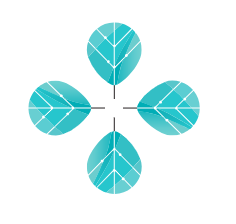Does it ever feel like the very tools that help you do your job are also making it impossible to do your job? An ever-replenishing email inbox. Dozens of open browser tabs. Constant interruptions in the form of tweets, messaging apps like Slack and WhatsApp and whatever new communication service has just “disrupted” The Way We Work Now. And, of course, your phone—beeping, buzzing and bringing you updates on everything from breaking world news to messages from friends and family.
On their own, of course, none of these are sinister. But taken together, they add up to one of the defining challenges of modern life: non-stop distractions. We’re more connected and empowered by technology than ever before, but those same tech tools—with their competing demands on our attention—are making it harder for us to focus. And when we’re unable to focus, we’re no longer playing offense—we’re playing defense. We’re always catching up, feeling depleted and stressed, never quite in control. But it’s possible to operate from a place of strength and clarity, where you can tap into your creativity, be open to inspiration and new ideas, and give every project the attention it deserves. It’s not anti-tech to want to improve your relationship with your devices—it’s as pro-tech as it gets, because doing so allows us to get the best use out of our devices and apps without compromising how we spend our time.
Research shows there are ways for each of us to increase our focus, with benefits for every aspect of our performance and productivity. And getting started is as simple as taking small, science-backed steps.
Welcome to the Thrive Guide to Focus
Thrive Global is a behavior change platform focused on lowering stress and increasing well-being and productivity. The company, founded by Arianna Huffington, creates lasting change in people’s lives by giving them sustainable, science-backed solutions to enhance their performance and overall well-being.
This Thrive Guide will show you exactly how to minimize distraction, decide what deserves your attention and what doesn’t and sharpen your focus in ways that boost your productivity and performance.
Most distractions come from outside sources (like your inbox, or the push notifications you don’t remember signing up for), which means we often feel helpless when we face them. We can’t control all that’s coming at us, we tell ourselves, so we have no choice but to surrender and be reactive. But we have more power than we realize, and when we’re able to consciously focus, minimizing distractions becomes much easier. You’ll see how easy it is with our Thrive Global Microsteps—simple, science-backed changes you can start incorporating into your life today.
We’ll introduce you to the New Role Models who prove that guarding your attention is more than just possible—it’s a performance-enhancing skill that can be learned. For example, Inspired Companies founder Lisa MacCallum told Thrive about a focus-enhancing lesson one of her favorite bosses taught her about email. Zuckerberg Media Founder Randi Zuckerberg told Thrive that taking time away from email not only helps her focus on in-depth, creative tasks—it makes her a more effective emailer. And Srinivas Rao, curator of Insanely Interesting People, told Thrive that turning off his phone two hours before bed increases his ability to focus in the morning.
In our Tech to Thrive section, we’ve curated the best apps and tools that can help you sharpen your focus, minimize distractions and treat your attention like the valuable resource it is.
Given how crucial focus is to performance, it’s important that you give your teams the tools they need to focus on what really matters. Our Managerial Take-aways section offers advice for managers who want to lead by example and help their direct reports succeed in sharpening their focus—especially when you might be one source of the problem. Oftentimes it’s managers who set the tone for distracting workplaces by emailing, texting, g-chatting and making calls to direct reports throughout the day (and even through the night). So by making small changes to your own habits, you’re in the best position to lead by example. When you do, you’ll find your teams are better equipped to take on big, ambitious projects and see them through. And as a leader, you’ll find you’re more open and receptive to the needs and ideas of your colleagues when you’re not fending off constant distractions yourself.
By the end of this guide, you’ll have the tools and practical advice you need to reach new heights of performance and productivity through improved focus. And you’ll have a deeper understanding of just how much distraction is costing us—and how we can turn that around with a few simple, intentional changes.
The Science That Will Help You Defeat Distraction
Let’s start by looking at the scope and scale of distraction in our lives and how it’s affecting our productivity, performance and overall ability to see beyond the beeping, buzzing moment and tap into bigger ideas that can truly have an impact.
It’s impossible to talk about distraction without first talking about our relationship with our devices. We check our phones 150 times a day, according to one estimate. The average Internet user spends more than two hours a day on social networks—and that figure is rising every year. A global study released earlier this year found that the average office worker gets 121 emails every day—and nearly half of them are spam. The tyranny of email, not only at the office but after-hours, has prompted France to force companies to set hours when employees don’t have to send or reply to work emails.
These stats are important, but they don’t tell the whole story. Our inability to focus is psychological; it taps into our anxieties and vulnerabilities. There’s a reason you can’t stop checking whether you got another Facebook like, WhatsApp message or email. Tristan Harris, a former Google design ethicist, calls this engineering by today’s technology companies the “arms race for human attention.” The constant distractions you’re up against each day aren’t an accident—it’s exactly what tech companies want, since the more time you spend on their devices and using their programs, the more money they make. Tech designers have gotten very good at maximizing addictiveness by offering us rewards for spending more time with our devices—from likes and being tagged to a larger sense of being part of moments as they unfold (and the related relief that we’re not missing out on them).
But when we rise above digital peer pressure and consciously reclaim our attention, the results can be liberating—“a sign of intellectual and spiritual independence,” according to Susan Cain, author of the best seller Quiet: The Power of Introverts in a World That Can’t Stop Talking. “In the past, that person wasn’t fitting in. Now, it’s not true. The influx of information is too much for everyone.”
There’s nothing wrong with using our devices or enjoying the experience and benefits of apps. (Think about how easy Facebook makes it to connect with far-flung friends and family, for example, or how Twitter helps you stay on top of important news.) It’s when we cross over into dependency and relinquish our control over our own decisions and our time that our focus suffers.
Think, for a moment, about how many times you’re interrupted in a given work day. Technology isn’t the only culprit. When a colleague politely taps you on the shoulder and asks if you’ve “got a minute,” the interruption can cause you to lose focus, lose momentum, and increase the chance that you’ll make a mistake. According to Gloria Mark, a professor of informatics at the University of California, Irvine, the average office worker is interrupted every 11 minutes. Not only that—after being interrupted, it takes 25 minutes, on average, for us to return to our original task. That’s not to say colleagues shouldn’t collaborate and ask for help. But when you’re aware of interruptions and their cost, you’ll be much more mindful of the way you spend your time—and more mindful of what you ask of others and how and when you do it.
Finally, if you consider yourself an expert multitasker, as so many of us do these days, you’re probably interrupting yourself. Focusing on more than one task at once can reduce your productivity by 40 percent, according to the Harvard Business Review. And the negative effects of multitasking are so potent that one expert, Stanford sociologist Clifford Nass, has called multitaskers “suckers for irrelevancy.” Multitasking, along with the feeling of being busy all the time, may make us feel productive, but the science shows otherwise.
Satya Nadella, the CEO of Microsoft, said it best: “We are moving from a world where computing power was scarce to a place where it now is almost limitless, and where the true scarce commodity is increasingly human attention.”
Changes You Can Make Today
Now that you know what these constant distractions are costing you—and how much more wisely you can spend your time without them—take a look at these small, actionable steps you can take (we call them microsteps at Thrive Global), that will change your relationship with this precious commodity, and move from scarcity to abundance.
1. Let others know when you need to focus.
When we face constant interruptions at work, we’re more likely to spend our after-work hours glued to our devices or trying to catch up, which can cut into our sleep time. So at the office, try being vocal about going into “Do Not Disturb” mode — time for focused work, without interruption, preferably in a quiet place. You’ll be more productive at the office and less likely to have a lot of work you must complete at night.
2. Take a short break at least once a day.
Working yourself into a state of burnout is the surest way to feel disconnected from yourself and the larger meaning of what you’re doing. To see the bigger picture, step away from your desk and do something that energizes you—you’ll return with renewed focus and purpose.
3. Keep only one browser tab open and use a tab manager to organize the rest.
Multi-tasking has been shown to significantly reduce our productivity. Try a tab manager to help you stay focused and stop constantly toggling between tasks.


